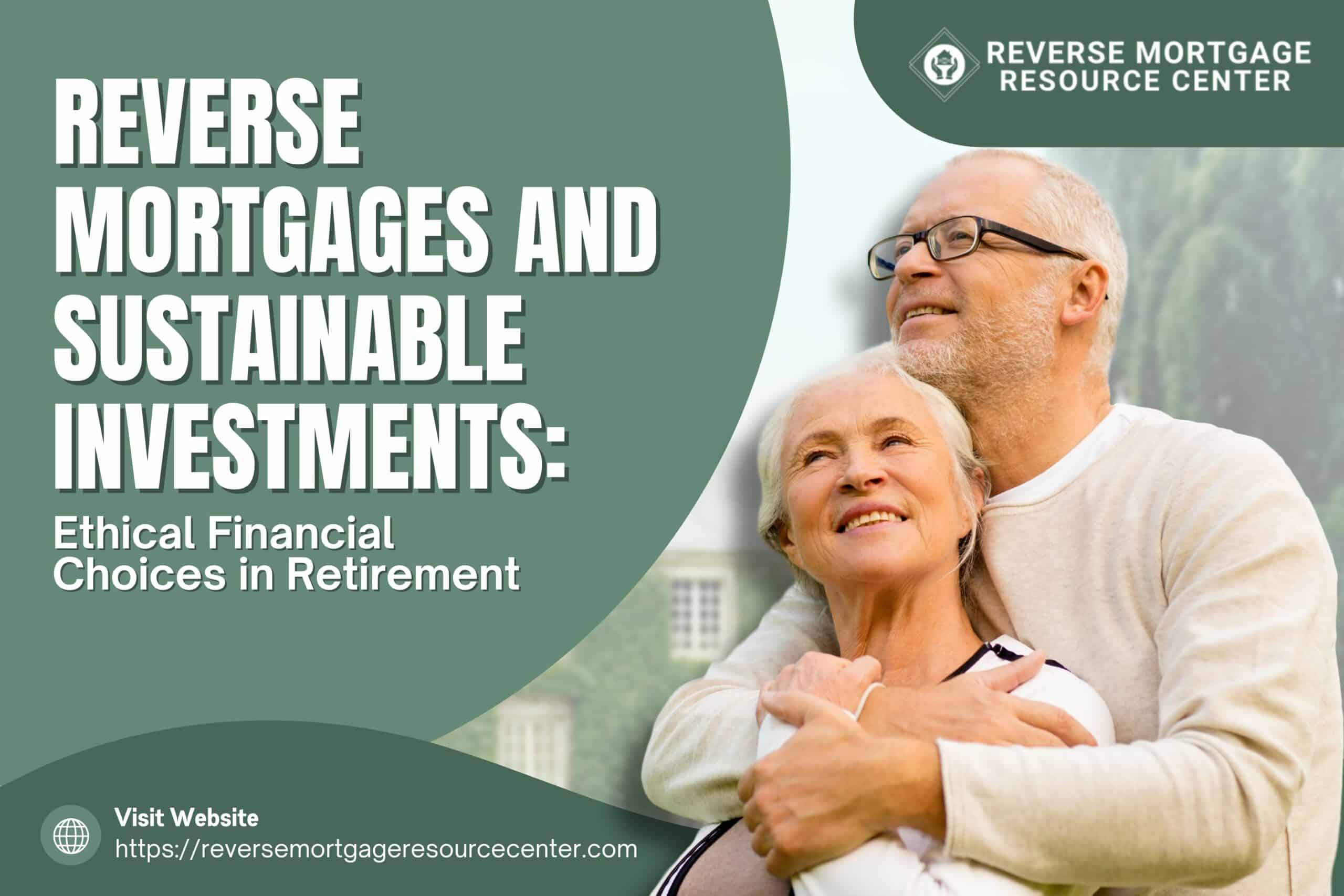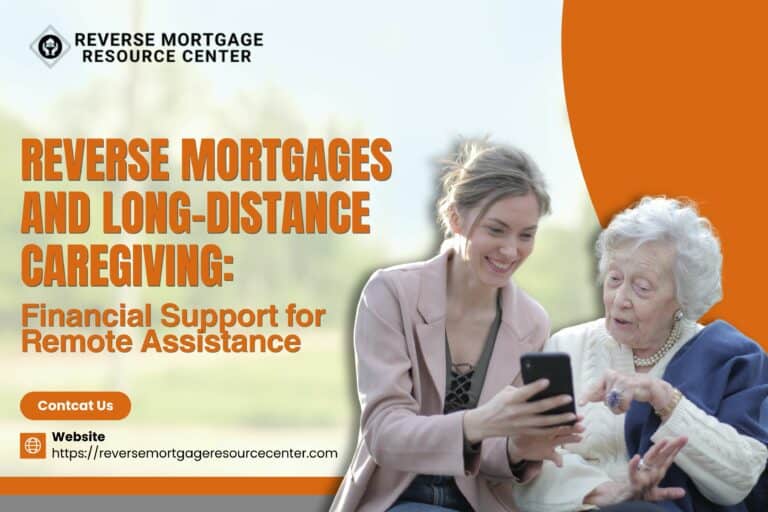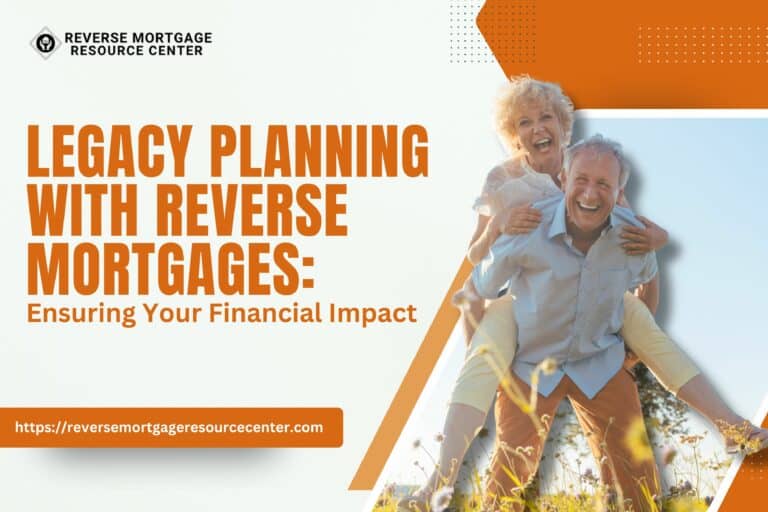Reverse Mortgages and Sustainable Investments: Ethical Financial Choices in Retirement
In the golden years of retirement, seniors often find themselves facing financial challenges as they navigate a complex landscape of investment options. This article aims to explore the intersection of reverse mortgages and sustainable investments, providing insights into ethical financial choices for seniors. By delving into environmentally and socially responsible strategies, we aim to guide seniors towards making informed decisions that align with their values while securing their financial future.
Understanding Reverse Mortgages: A Brief Overview:
Before delving into sustainable investments, it’s crucial to understand the fundamentals of reverse mortgages. Essentially, a reverse mortgage is a financial tool that allows homeowners aged 62 and older to convert a portion of their home equity into readily accessible funds. Unlike traditional mortgages, borrowers receive disbursements from the lender instead of making payments to them. This can provide a valuable source of funds during retirement, helping seniors meet their financial needs.
The Ethical Imperative: Integrating Sustainability into Retirement Planning:
As seniors contemplate their financial futures, there is a growing awareness of the ethical imperative to align investments with sustainability. Sustainable investing focuses on environmental, social, and governance (ESG) factors, emphasizing a triple-bottom-line approach that considers not only financial returns but also social and environmental impacts.
1. Environmental Considerations in Retirement Investments
Seniors can make a positive impact on the environment by directing their investments towards eco-friendly initiatives. Sustainable funds often support companies with strong environmental practices, such as renewable energy, clean technology, and sustainable agriculture. By incorporating these investments into their portfolios, seniors can contribute to a greener future while potentially earning competitive returns.
Investing in renewable energy projects, such as solar or wind power, not only promotes environmental sustainability but also aligns with a forward-thinking approach to energy production. Seniors can explore mutual funds or exchange-traded funds (ETFs) that focus on companies leading the charge in renewable energy innovation.
Additionally, sustainable agriculture investments support environmentally friendly farming practices, promoting soil health, biodiversity, and efficient resource utilization. Seniors can diversify their portfolios by investing in companies engaged in organic farming, regenerative agriculture, and ethical food production.
2. Social Responsibility in Retirement Investments
Investing with a social conscience is becoming increasingly important for seniors. Socially responsible investments focus on companies that prioritize fair labor practices, diversity, and community engagement. Seniors can choose investments that align with their values, supporting businesses committed to ethical conduct and positive social impact. This not only contributes to a better world but also fosters a sense of fulfillment in knowing that their investments are making a difference.
Prioritizing investments in companies that prioritize fair labor practices and champion diversity and inclusion can be a meaningful way for seniors to contribute to social responsibility. Companies with a commitment to employee well-being and a diverse workforce are likely to demonstrate long-term sustainability and resilience.
Community engagement is another crucial aspect of social responsibility. Seniors can explore investment opportunities that support local communities, such as affordable housing projects, education initiatives, or small business development. By investing in companies that actively contribute to the well-being of the communities they operate in, seniors can play a role in fostering positive social change.
3. Governance and Ethical Leadership
Governance considerations play a vital role in sustainable investing. Companies with strong governance practices are often more resilient and better equipped to navigate challenges. Seniors can prioritize investments in companies with ethical leadership, transparent governance structures, and a commitment to accountability. This ensures that their financial resources are directed towards businesses that uphold high ethical standards.
Choosing investments with a focus on ethical leadership involves researching companies’ corporate governance structures, executive compensation policies, and overall commitment to transparency. Seniors can opt for companies with diverse and independent boards, clear accountability mechanisms, and a track record of ethical decision-making.
Additionally, engaging with companies through proxy voting and shareholder activism allows seniors to exercise their influence as shareholders. By participating in corporate governance processes, seniors can advocate for ethical practices, pushing companies toward greater transparency, responsibility, and accountability.
Aligning Reverse Mortgages with Sustainability
Integrating sustainability into reverse mortgage decisions involves thoughtful consideration of the financial institution providing the loan. Seniors can explore lenders with a demonstrated commitment to ethical practices, responsible lending, and community engagement. By choosing a lender that aligns with their values, seniors can ensure that their reverse mortgage journey contributes to positive social and environmental outcomes.
When selecting a reverse mortgage lender, seniors should inquire about the institution’s ethical lending practices, customer service, and community involvement. Lenders that prioritize transparency, fair lending terms, and a commitment to customer satisfaction are more likely to contribute positively to seniors’ financial well-being.
Furthermore, some financial institutions specialize in green mortgages or socially responsible lending options. These lenders may offer discounted interest rates or additional benefits for homeowners committed to environmentally friendly practices, such as energy-efficient home improvements.
Expert Insights: Navigating Sustainable Retirement Planning:
To gain a deeper understanding of the intersection between reverse mortgages and sustainable investments, we consulted experts in the field. Financial advisors specializing in retirement planning emphasize the importance of a holistic approach. They suggest considering not only the immediate financial benefits of a reverse mortgage but also its long-term implications on the seniors’ financial health and the broader community.
1. Diversification for Long-Term Stability
Experts recommend diversifying investments even within the realm of sustainability. By spreading their financial resources across different sectors and asset classes, seniors can enhance the stability of their portfolios. This includes combining the benefits of a reverse mortgage with a diversified mix of sustainable investments, mitigating risks and ensuring a more resilient financial future.
Diversification involves allocating investments across various asset classes, such as stocks, bonds, real estate, and alternative investments. Within the realm of sustainable investing, seniors can explore a mix of ESG-focused mutual funds, green bonds, and socially responsible ETFs to achieve a well-rounded and diversified portfolio.
Investing in different sectors ensures that seniors are not overly exposed to the risks associated with a particular industry or market segment. This approach helps protect their financial well-being during economic downturns and market fluctuations, promoting long-term stability.
2. Professional Guidance
Seeking advice from financial professionals well-versed in both reverse mortgages and sustainable investments is crucial. These experts can help seniors navigate the complexities of ethical financial choices, ensuring that their retirement plans align with their values while meeting their financial goals. Professional guidance provides seniors with the knowledge and confidence needed to make informed decisions that will positively impact their financial well-being and the world around them.
Financial advisors specializing in sustainable investing can assist seniors in identifying investment opportunities that align with their values and financial objectives. These professionals have access to research tools and market insights that can help seniors make informed decisions based on their unique financial situations and goals.
Moreover, financial advisors can provide ongoing guidance, monitoring the performance of seniors’ investment portfolios and adjusting strategies as needed. This proactive approach ensures that seniors stay on track to meet their financial goals while maintaining a commitment to sustainability.
Making Ethical Choices for a Sustainable Retirement:
In the pursuit of financial security during retirement, seniors have the opportunity to make ethical and sustainable choices. By integrating reverse mortgages with environmentally and socially responsible investments, seniors can align their financial decisions with their values, leaving a positive impact on the world. As the landscape of retirement planning evolves, the importance of ethical financial choices becomes increasingly evident, offering seniors a path to not only secure their futures but also contribute to a better, more sustainable world.
REVERSE MORTGAGE RESOURCE CENTER ~LIVE LIFE ON YOUR TERMS~
Our Lending Team has been serving our clients since 2004. We are passionate about serving our clients with integrity to help them achieve their financial goals.







